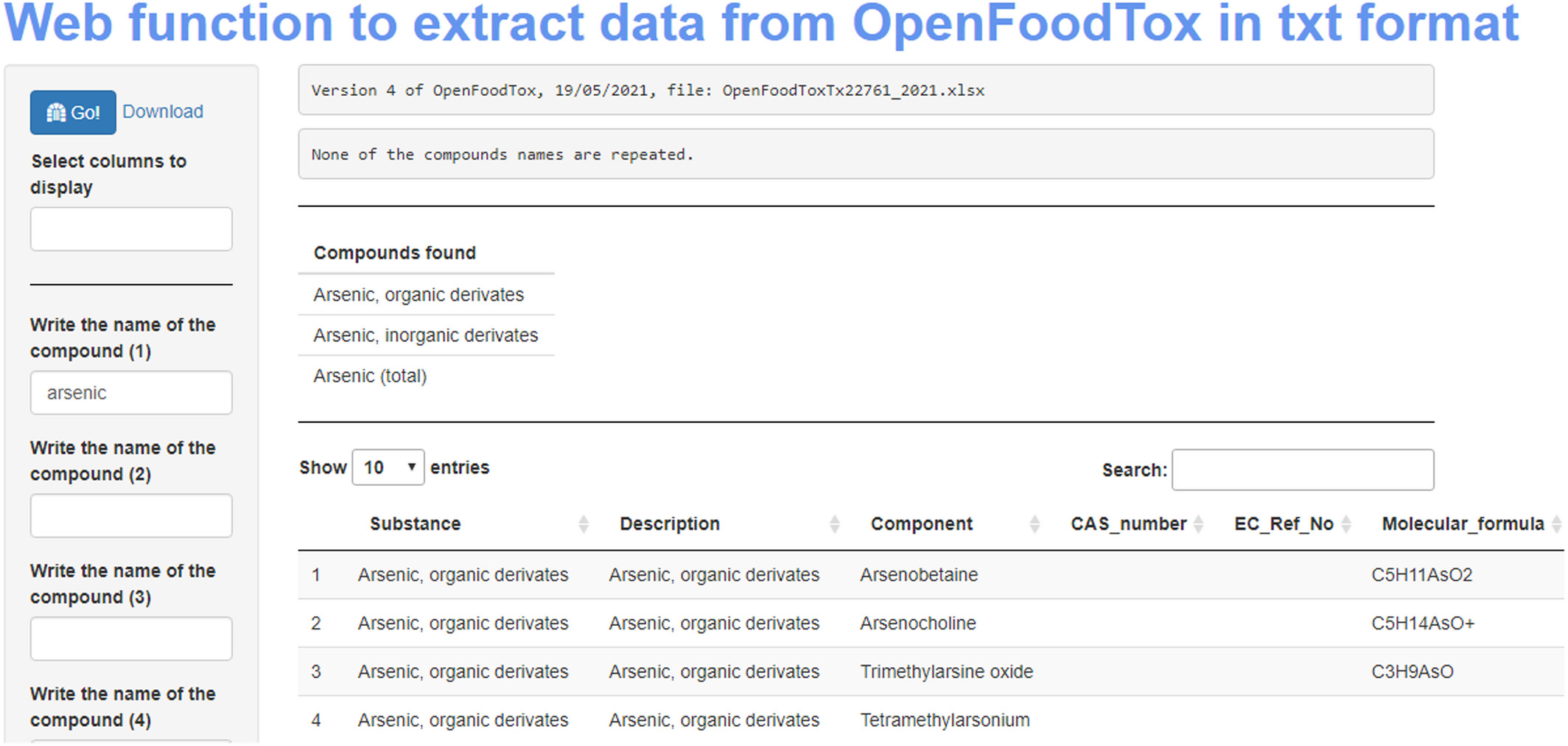Difference between revisions of "Template:Article of the week"
From LIMSWiki
Jump to navigationJump to searchShawndouglas (talk | contribs) (Updated article of the week text) |
Shawndouglas (talk | contribs) (Updated article of the week text) |
||
| Line 1: | Line 1: | ||
<div style="float: left; margin: 0.5em 0.9em 0.4em 0em;">[[File: | <div style="float: left; margin: 0.5em 0.9em 0.4em 0em;">[[File:Fig1 Pineda-Pampliega EFSAJournal2023 20-S2.png|240px]]</div> | ||
'''"[[Journal: | '''"[[Journal:Developing a framework for open and FAIR data management practices for next generation risk- and benefit assessment of fish and seafood|Developing a framework for open and FAIR data management practices for next generation risk- and benefit assessment of fish and seafood]]"''' | ||
[[Risk assessment|Risk and risk–benefit assessments]] of food are complex exercises, in which access to and use of several disconnected individual stand-alone [[database]]s is required to obtain hazard and exposure information. Data obtained from such databases ideally should be in line with the [[Journal:The FAIR Guiding Principles for scientific data management and stewardship|FAIR principles]], i.e. the data must be findable, accessible, interoperable, and reusable. However, often cases are encountered when one or more of these principles are not followed. In this project, we set out to assess if existing commonly used databases in risk assessment are in line with the FAIR principles ... ('''[[Journal:Developing a framework for open and FAIR data management practices for next generation risk- and benefit assessment of fish and seafood|Full article...]]''')<br /> | |||
''Recently featured'': | ''Recently featured'': | ||
{{flowlist | | {{flowlist | | ||
* [[Journal:An extract-transform-load process design for the incremental loading of German real-world data based on FHIR and OMOP CDM: Algorithm development and validation|An extract-transform-load process design for the incremental loading of German real-world data based on FHIR and OMOP CDM: Algorithm development and validation]] | |||
* [[Journal:Potency and safety analysis of hemp-derived delta-9 products: The hemp vs. cannabis demarcation problem|Potency and safety analysis of hemp-derived delta-9 products: The hemp vs. cannabis demarcation problem]] | * [[Journal:Potency and safety analysis of hemp-derived delta-9 products: The hemp vs. cannabis demarcation problem|Potency and safety analysis of hemp-derived delta-9 products: The hemp vs. cannabis demarcation problem]] | ||
* [[Journal:The NOMAD Artificial Intelligence Toolkit: Turning materials science data into knowledge and understanding|The NOMAD Artificial Intelligence Toolkit: Turning materials science data into knowledge and understanding]] | * [[Journal:The NOMAD Artificial Intelligence Toolkit: Turning materials science data into knowledge and understanding|The NOMAD Artificial Intelligence Toolkit: Turning materials science data into knowledge and understanding]] | ||
}} | }} | ||
Revision as of 16:50, 26 February 2024
Risk and risk–benefit assessments of food are complex exercises, in which access to and use of several disconnected individual stand-alone databases is required to obtain hazard and exposure information. Data obtained from such databases ideally should be in line with the FAIR principles, i.e. the data must be findable, accessible, interoperable, and reusable. However, often cases are encountered when one or more of these principles are not followed. In this project, we set out to assess if existing commonly used databases in risk assessment are in line with the FAIR principles ... (Full article...)
Recently featured:
- An extract-transform-load process design for the incremental loading of German real-world data based on FHIR and OMOP CDM: Algorithm development and validation
- Potency and safety analysis of hemp-derived delta-9 products: The hemp vs. cannabis demarcation problem
- The NOMAD Artificial Intelligence Toolkit: Turning materials science data into knowledge and understanding










